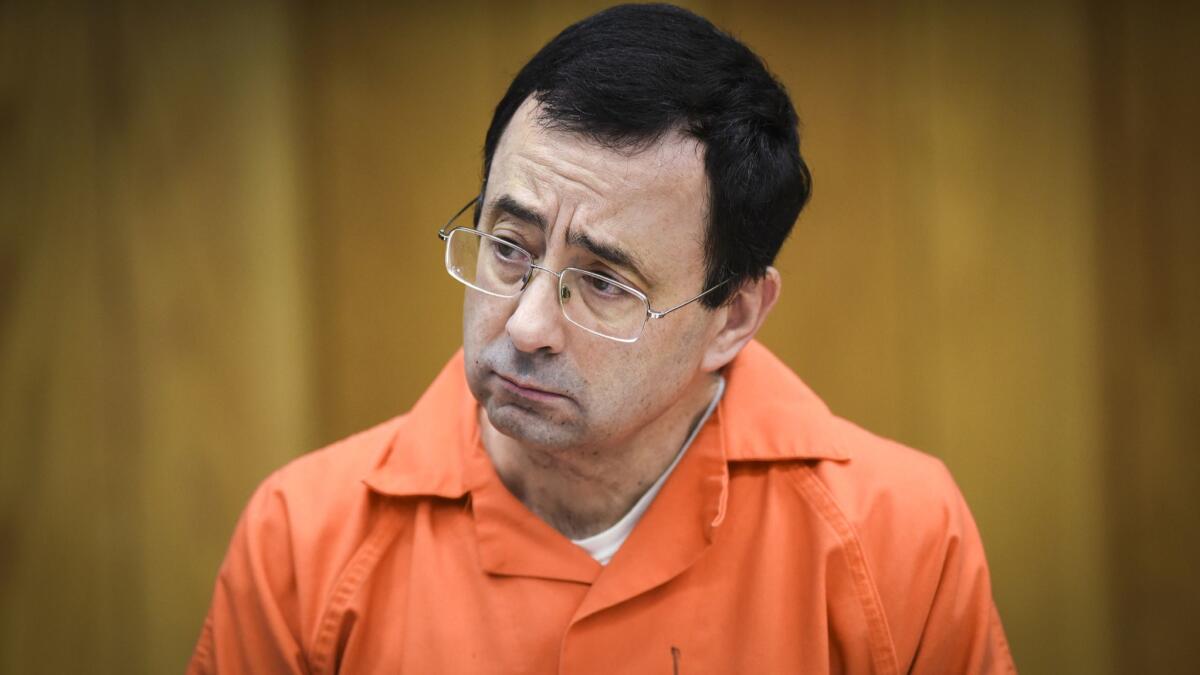Congressional report cites ‘breakdowns and failures’ in USOC’s handling of Larry Nassar sex abuse scandal

The besieged U.S. Olympic Committee got more bad news on Thursday, with a congressional report finding “a number of breakdowns and failures” in the way the sports organization has handled sexual abuse cases.
The Energy and Commerce Committee issued its bipartisan review after a year-long investigation triggered by the Larry Nassar scandal.
While noting that the USOC and the national governing bodies that manage the Olympic sports under its umbrella have made improvements, the subcommittee asserted that “more work remains so that our athletes can finally feel safe and protected.”
In a statement, USOC Chief Executive Sarah Hirshland said: “While we’ve only just begun to digest the recommendations, this report adds another significant source of information to ensure we understand areas in which the Olympic community failed athletes and meaningful actions we can take to ensure that athlete safety is our No. 1 priority.”
Hundreds of young athletes have come forward with accusations that Nassar — a former sports doctor who worked in various capacities for Michigan State, USA Gymnastics and the U.S. Olympic team — molested them under the guise of providing medical treatment.
The 55-year-old Nassar is expected to spend the rest of his life in prison after pleading guilty to charges of sexual assault and possession of child pornography.
The scandal has prompted a wave of lawsuits against the USOC, USA Gymnastics and Michigan State.
In its report, the congressional subcommittee presented a list of recommendations, starting with a thorough review of the U.S. law related to amateur sports. The report also suggests the USOC take a more active role in overseeing national governing bodies and maintaining a public database of banned coaches and officials.
Twitter: @LAtimesWharton
More to Read
Go beyond the scoreboard
Get the latest on L.A.'s teams in the daily Sports Report newsletter.
You may occasionally receive promotional content from the Los Angeles Times.






